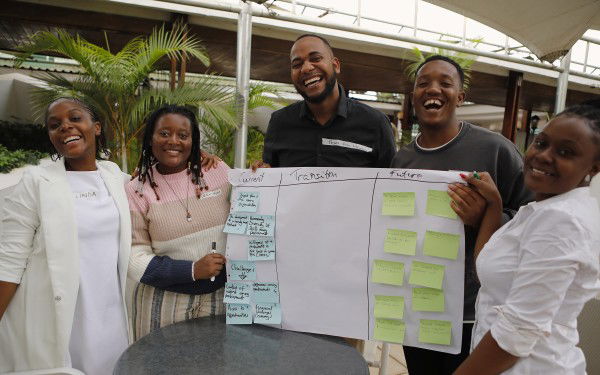– In line with our recommendations, says senior adviser in Norec Kari Lindemann.
Many companies in Norway have temporary workers from other countries. Among them are around 200 Norec participants than come to Norway on exchange every year.
The new report from Offord Research has investigated how Norwegian companies receives foreign temporary workers. The time perspective and fewer available resources often make the situation very different from with permanent employees.
– Norec emphasises how important it is for the workplaces to prepare well before the exchange participant arrives. This report shows how important that is, says Lindemann.
Clear expectations and a mentor are the most important factors
Succeeding with including temporary employees on the workplace sets different demands to the companies then for permanent employees. The report shows that there are many steps the workplace can take to succeed, but often it requires planning well.
According to the report, providing the employee with clear expectations and work descriptions already before they start the job is among the most important measures. The same goes for having access to a mentor. A mentor is a person that it is easy for the employee to contact for questions and support, for both social and work-related matters.
The mentor should have experience from living in a different country themself, but this does not have to be the same country as the temporary employee.
– To have experience from having been new and alone in a foreign culture is very useful when helping new employees settling in on the workplace, Lindemann explains.
The report highlights several other measures companies can take to receive temporary workers in the best possible way. The employers should among other things
- Treat temporary employees as similar as possible to permanent employees
- Give equal access to equipment and expect equal participation in both formal and informal meetings
- Clarify expectations before the job starts and give a clear description of the work tasks
- Ensure clear communications about the work tasks underway
- Give work tasks that are adjusted to the knowledge and skills of the temporary worker, and clearly appreciated their individual contributions
- Make sure there is a transfer of knowledge and experience between the different temporary workers
- Offer early language classes and course on Norwegian society and working life
- Ensure accommodation that is easily accessible and places to that it facilitates socialisation also outside of work
Some of the advices may seem obvious, but Lindemann warns that it is easy to take things for granted:
– Reporting routines and ways to give feedback to each other often varies between countries. Therefore, it is smart to be very clear on these kinds of things already before the employee arrives at the workplace, she finishes.
You can read the whole report here. The report is commissioned from Norec.





